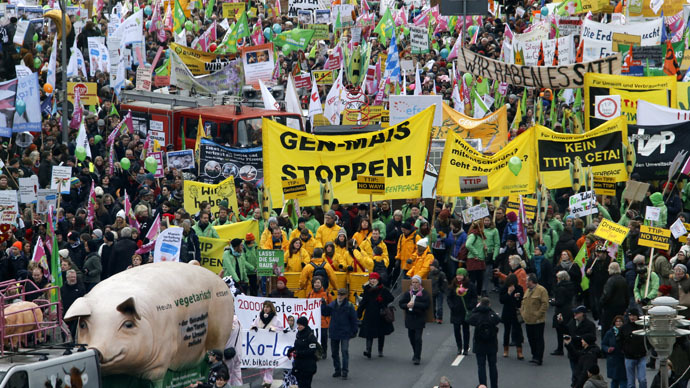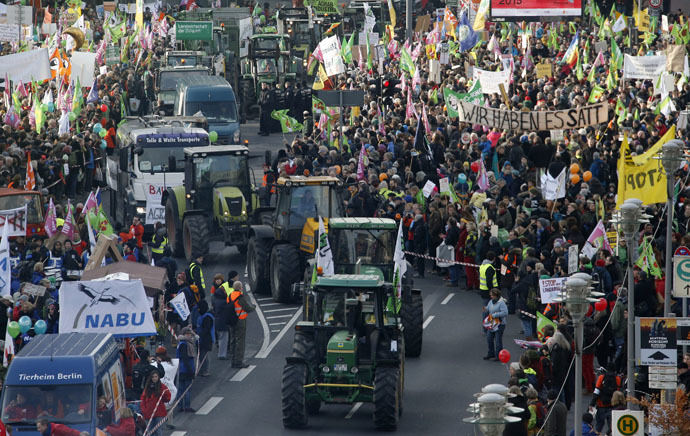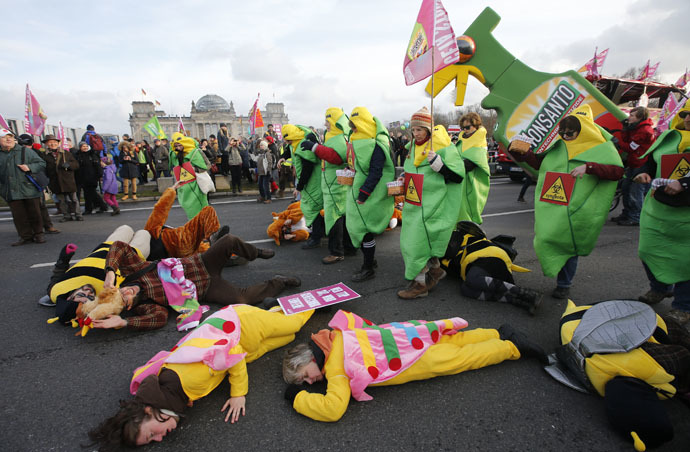‘We are fed up!’: Thousands march against TTIP & GMOs in Berlin (PHOTOS, VIDEO)

A broad alliance of farmers, ethical consumers, and anti-capitalist activists staged a march through Berlin that numbered up to 50,000, to denounce the proposed TTIP treaty between the US and EU, and mass farming technologies.
More than 120 organizations joined the fifth annual ‘We are Fed Up!’ demonstration, which this year focused on the increased importation of American farming practices – such as genetic modification, frequent antibiotic injections for animals, and chemical meat treatments – following the implementation of the controversial Transatlantic Trade and Investment Partnership (TTIP).

"The EU-USA trade agreement TTIP only serves global concerns, and will take away the means of existence from many farms here and across the world," rally organizer Jochen Fritz told the media.

Police said that 25,000 people joined the peaceful demonstration – with organizers claiming twice that number – though the most impressive spectacle included a procession of 80 tractors manned by angry farmers. The demonstration was timed to coincide with International Green Week, a large agriculture fair that has just begun in Berlin.

“Eating is political. Every single decision I make about what to buy is determined by how the animals are kept, or what grows in our fields. And I can make sure that I support the farmers and not the big agricultural industry corporations,” said Fritz.

READ MORE: Pasty peril! TTIP threatens Cornwall’s £300m meat pastry trade
The much stalled TTIP, whose 24-chapter provisional text was made public last week after formal negotiations since July 2013, seeks to formalize the economic relationship between the EU and US economies across the board. The two partners trade nearly €1 billion (US$1.1 billion) worth of goods and services annually.

But the search for standardization has led to wide rifts in several areas – specifically agriculture – with US-based multinationals such as Monsanto leading the way in technological innovations, while the European public remains wary, despite assurances from EU regulators.
Speaking at one of the Green Week events, Federal Agriculture Minister Christian Schmidt promised to address the issues raised by the demonstrators, and said that he welcomed the public display of opinion.












